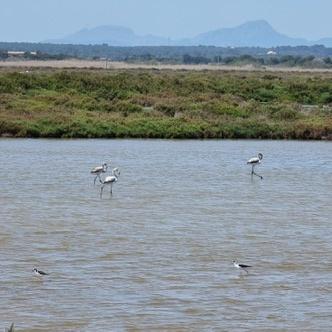Can the wetland near Es Trenc beach help mitigate the effects of climate change, and if so, how?
Similar Topics
wetland climate mitigation
es trenc beach
carbon sinks
greenhouse gas reduction
coastal flood protection
shoreline stabilization
biodiversity resilience
natural ecosystem benefits
The wetland near Es Trenc beach plays an important role in mitigating the effects of climate change through its natural ecological functions. Wetlands act as carbon sinks, meaning they absorb and store large amounts of carbon dioxide from the atmosphere. This process helps reduce the overall concentration of greenhouse gases, which are responsible for global warming. The dense vegetation and saturated soils of the wetland allow organic matter to accumulate, trapping carbon that would otherwise contribute to climate change.
Additionally, wetlands near coastal areas like Es Trenc provide a buffer against the impacts of rising sea levels and extreme weather events. They help absorb excess water during storms, reducing the risk of flooding and coastal erosion. This protective function is increasingly valuable as climate change leads to more frequent and intense storms. By stabilizing shorelines and maintaining water quality, wetlands support the resilience of both natural ecosystems and human communities.
The wetland’s biodiversity also contributes to climate change mitigation indirectly. Healthy ecosystems with a variety of plant and animal species can better adapt to shifting conditions and maintain their functions over time. This resilience ensures that the wetland continues to provide benefits such as water purification, habitat provision, and recreational value. Therefore, preserving and managing the wetland near Es Trenc beach is vital not only for local wildlife but also as a natural ally in the global effort to combat climate change.
Additionally, wetlands near coastal areas like Es Trenc provide a buffer against the impacts of rising sea levels and extreme weather events. They help absorb excess water during storms, reducing the risk of flooding and coastal erosion. This protective function is increasingly valuable as climate change leads to more frequent and intense storms. By stabilizing shorelines and maintaining water quality, wetlands support the resilience of both natural ecosystems and human communities.
The wetland’s biodiversity also contributes to climate change mitigation indirectly. Healthy ecosystems with a variety of plant and animal species can better adapt to shifting conditions and maintain their functions over time. This resilience ensures that the wetland continues to provide benefits such as water purification, habitat provision, and recreational value. Therefore, preserving and managing the wetland near Es Trenc beach is vital not only for local wildlife but also as a natural ally in the global effort to combat climate change.
🧩 Related Questions
Related Question
How does Mallorca compare to other Mediterranean locations as a filming destination?
Related Question
What are the best times of year to visit Mallorca for pleasant weather and fewer crowds?
Related Question
Can Trempo be prepared in advance, and if so, how does that affect its taste and texture?

